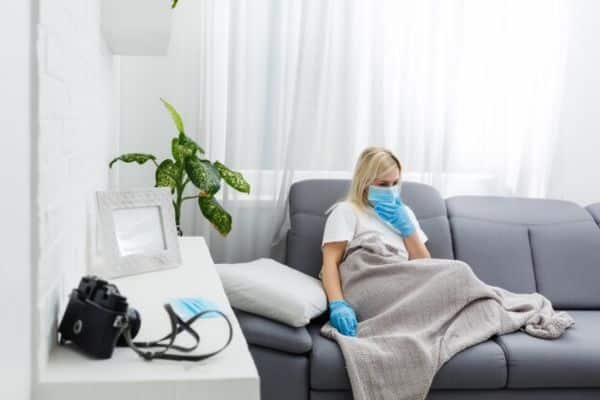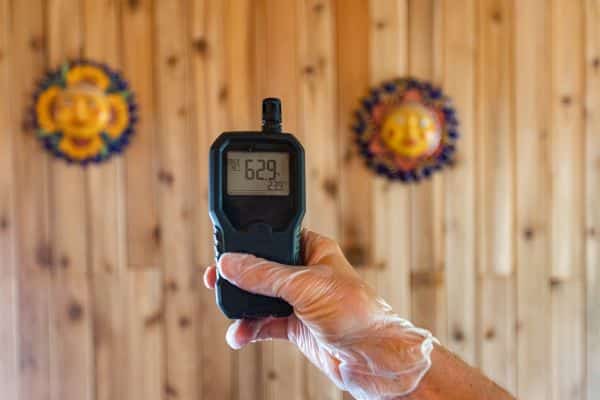As we spend most of our time indoors, the air quality in residences and workplaces significantly impacts our physical and mental well-being.
Poor indoor air quality (IAQ) may lead to various health issues, like fatigue, breathing problems, and long-lasting effects.
It has been reported that, in recent years, 4% of global deaths occur due to indoor air pollution. To develop an improved atmosphere for living it is necessary to recognize the causes of deteriorating the air quality inside.

According to the EPA, the quality of air inside homes and workplaces can be 2 to 5 times more polluted than the air outdoors.
This can affect people's health, especially those who spend much time indoors. Therefore, it is important to prioritize clean indoor air to maintain overall well-being.
Let's explore some common factors that contribute to poor indoor air quality.
Inadequate ventilation is one of the primary factors that can result in poor indoor air quality issues. Pollutants such as carbon dioxide, volatile organic compounds (VOCs), and other substances in the air can build up in an area with inadequate ventilation.
These pollutants decrease the overall quality of the air that circulates inside. Moreover, HVAC systems need frequent inspection and cleaning to ensure peak performance, otherwise they might recirculate even more accumulated pollutants.

There is plenty of evidence about the negative effects of smoking on breathing. Consequently, frequent smoking has hazardous effects on indoor air quality.
Formaldehyde and benzene are only two examples of several harmful chemicals. These are present in secondhand smoke, which may remain in the air for quite a while.
Applying smoke-free regulations in homes and public places is necessary. This can improve the indoor air and protect the well-being of non-smokers.
Sanitizers, cleaners, and disinfectants are regular in households, assisting in deeper cleaning. However, most of those products emit harmful chemicals into the surrounding environment.
VOCs, which can be found in traditional cleaning products, may pollute indoor air quality. Minimizing the negative effects of household cleaning on indoor air quality is possible.
This can be done by employing alternative substances such as baking soda and vinegar. One can opt for eco-friendly and low-VOC cleaning solutions to achieve the same result.

HVAC systems play a vital role in ensuring indoor air quality. However, if regular cleaning is ignored, mold, bacteria, and other contaminant substances may develop and spread.
Routine inspection, thorough cleaning, and prompt filter changes are the recommended norms for the proper functionality of HVAC systems.
The substances used in constructing buildings and furniture that have been placed inside the residence over the years sometimes cause poor indoor air quality.
For example, the air quality can be harmed by releasing formaldehyde from certain pressed wood products like plywood and particleboard.
Choosing formaldehyde-free or low-emission construction and furniture materials minimizes toxic chemical release.
The ideal condition for mold development is high moisture levels. This can result in several allergies and breathing issues.
Increased humidity levels are typically caused by leaking roofs, plumbing problems, or lack of ventilation in places. Example: restrooms or basements.
The most effective ways to prevent mold growth while maintaining your residence are regular checkups, fast servicing, and proper ventilation.
Radon gas, which is colorless and odorless, can enter buildings due to increased levels of uranium in some areas. A higher possibility of lung cancer is related to long-term contact with radon.
Checking residences for radon and implementing mitigation strategies can significantly improve indoor air quality and reduce health risks.

Pets and pests in our homes can affect the quality of the air we breathe. Cats and dogs can shed fur and dander, triggering allergies or asthma. Unwanted pests like bugs and mice can also bring in harmful particles that can cause breathing problems.
To maintain healthy indoor air, it's important to groom pets regularly. Also, use pest control measures and invest in prevention methods.
When you don't clean your carpets, they become a hiding place for dust and dirt, worsening the indoor air.
Dust and dirt may not be visible, but your carpet releases vast amounts of these pollutants whenever walked on.
Therefore, regularly cleaning your carpets will not only keep your home looking tidy but also ensure cleaner indoor air.

Changes in the humidity levels at home can lead to the growth of mold, which can affect breathing. Therefore, it is important to maintain a balanced indoor humidity level to keep the air fresh and healthy.
This not only helps to prevent mold but also ensures a comfortable and engaging environment for everyone.
Usually, your HVAC system regulates humidity levels, but it can get worse if not cleaned and maintained on a regular basis.
Microbes, such as bacteria and other airborne pathogens, can grow in homes that are not well-maintained.
These tiny organisms have the potential to make people ill or trigger allergies. Prevention methods for microbes rely heavily on routine cleaning of HVAC systems.

Sometimes, the temperature inside our homes can fluctuate, causing discomfort and affecting the air quality. When it gets too cold, the air in the room may trigger asthma and other breathing issues.
On the other hand, when the temperature rises, certain home items can emit toxic pollutants into the air, further deteriorating the indoor air quality.
Indoor air temperature is regulated by your HVAC system, and if a malfunction occurs, tackling the situation instantly is the highest priority.
If you suspect that the air quality at your home or workplace is poor, the first step is to hire professionals to conduct air testing.
They use specialized tools to measure the air quality, setting the stage for appropriate cleaning measures. Certain businesses in places like New Jersey must undergo indoor air tests, especially if they are old or use unsafe chemicals.
You can improve ventilation by relying on your HVAC system, and consider using air purifiers with HEPA filters to clean the air.
The goal is to ensure a healthy and clean breathing environment, which your HVAC system is already designed to accomplish. All you need to do is ensure your HVAC systems work at optimum functionality.

Air quality tests play a major role in evaluating and ensuring the air's safety, whether indoors or outdoors. Experts use specialized tools to evaluate air. These samples are then analyzed for pollutants such as VOCs, radon, and mercury.
These tests help to identify health risks and pollution sources, making it easier to take measures to mitigate them. In some areas, businesses may be required to undergo periodic air quality testing to comply with health standards.
If you need an air quality test, schedule an appointment with All City Duct Cleaning to ensure your property is safe.
To summarize, indoor air quality relies on ventilation and considering the aforementioned points. However, the HVAC system, the main contributor to excellent indoor air quality, requires attention.
Keeping your HVAC system in top running condition will immediately mitigate 90% of all factors that worsen indoor air quality.
If you’re unsure about the status of your HVAC system, reach out to a professional today and stay updated on how you can contribute to improving the indoor air quality of your homes.